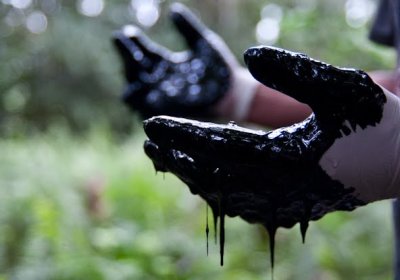Ecuador withdrew its ambassador from Tel Aviv on July 18 in protest at Israel's offensive, which has already killed more than 700 Palestinians. Middle East Monitor reported that Ecuador's foreign minister Ricardo Patino said: “We condemn the Israeli military incursion into Palestinian territory, we require cessation of operations and indiscriminate attacks against civilians.”
Ecuador
Ecuador accused US scientists on June 16 of taking thousands of unauthorised blood samples from indigenous Huaorani and selling them.
The Huaorani are known for a unique genetic profile and disease immunity and the samples are believed to have been sold by the Coriell Institute for Medical Research to Harvard University Medical School.
Ecuador’s constitution bans the use of genetic material and scientific research in violation of human rights.
At the G77 plus China Summit held in Bolivia that ended on June 15, several Latin American presidents gave public backing to Venezuelan president Nicolas Maduro. They called for regional unity against an bid for “conservative restoration” under way in the South American country.
The summit, held in Santa Cruz, eastern Bolivia, brought together 133 countries, about two-thirds of the member states of the United Nations.
A recent spate of high-profile campaigns against industrial projects based on extracting raw materials has opened up an important new dynamic within the broad processes of change sweeping South America.
Understanding their nature and significance is crucial to grasping the complexities involved in bringing about social change and how best to build solidarity with peoples’ struggles.
Many of the campaigns target that specific mining, oil, agribusiness or logging ventures share common elements.
Ecuador's Amazonian indigenous community of Sarayaku is in a state of rebellion against the central government after refusing entry to a police contingent arriving by helicopter on the morning of May 6.
The helicopter landed, but was barely able to stay five minutes after being threatened by 300 people carrying machetes, muskets and a net to throw over the helicopter.
“This is extremely serious, an attack on the rule of law in this country,” President Rafael Correa said. “Tomorrow, any other community could claim the right to harbour fugitives.”
Ecuadorian President Rafael Correa’s decision to drill for oil in the ITT block of Yasuni National Park looks set to be reviewed at a referendum. Environmental groups delivered hundreds of thousands of signatures to the National Electoral Commission on 11–12 April petitioning against the decision.
United for Yasuni (Yasunidos) collected 856,704 signatures. Kichwa indigenous federation Ecuarunari delivered more than 200,000 and Amazon Total Defence Front (FDTA) provided 584,008.
A New York judge has overruled the US$9.5 billion (A$10.5 billion) in compensation for toxic waste dumping that Chevron had been ordered to pay to Ecuadorian villagers.
The oil company, the world’s third largest, was found guilty in 2012 by an Ecuadorian court of causing huge environmental damages in the Amazon Basin. At the time, it was the largest environmental damages lawsuit ever.
Texaco oil company, which merged into Chevron Corporation in 2001, operated in the Sucumbios province of Ecuador, in the uppermost headwaters of the Amazon Basin, from 1964 to 1992.
United States oil giant Chevron has filed a suit for damages against a cartoonist who ridiculed its legal antics in its ongoing case against Ecuador.
The oil giant is using the US court system to seek to avoid paying US$9 billion that an Ecuadorian court ruled it owed in environmental compensation for dumping oil waste in the Amazon Basin.
Mark Fiore, Pulitzer Prize-winning cartoonist with The San Francisco Chronicle, has now been included in the ongoing legal dispute.
Venezuelan President Nicolas Maduro has called for an “eradication” of “colonialism” in Latin America at the annual summit of the Community of Latin American and Caribbean States (CELAC).
During the summit held in Cuba’s capital, Havana, over January 28 and 29, Maduro called for Puerto Rican independence and an end to British administration of the Falklands/Malvinas Islands, to which Argentina claims sovereignty.
Puerto Rico was offered full membership of CELAC under a proposal made to the summit by Venezuela.
The International Criminal Court (ICC) was established at The Hague in 2002 to investigate and prosecute individuals alleged to have committed war crimes, crimes against humanity and the crime of genocide.
Between 2002 and 2009, the Bush administration implemented sanctions on military aid and Economic Support Funds (ESF) assistance against states which refused to sign “Article 98” agreements with the US. Under such agreements, states agreed not to transfer US nationals to the ICC without the consent of the US government.
Having virtually all the money in the world often means you can buy silence, you can buy time, and you can buy lies.
Chevron has demonstrated this time and again in its decades-long battle to evade accountability for deliberately dumping 18 billion gallons of toxic wastewater into the Ecuadorian Amazon.
The problem is that this time, what Chevron has bought is a bag of lies in the form of false testimony from a thoroughly disreputable source, and it isn't able to hide the price tag.
From Richmond, California to Ecuador and Romania, communities affected by oil giant Chevron’s operations are rising up to demand justice.
Chevron’s response in each case has been consistently irresponsible: Deny any wrongdoing, cover up the extent of corporate malpractice and environmental contamination, and go on the offensive against anyone demanding the company take responsibility for its messes.
But lately, the company has really been on a tear, taking its anti-democratic attacks to bold new heights.
- Previous page
- Page 10
- Next page







